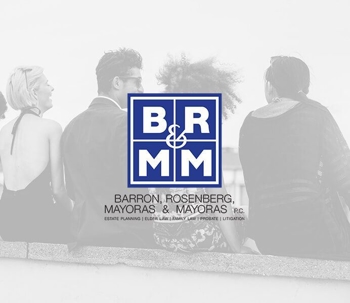President Obama has signed into law a bill eliminating use of the phrase “mentally retarded” from all federal law. The the law is named Rosa’s Law after the Maryland 8-year-old with Down syndrome whose family initially advocated for the change.
Rosa’s Law was proposed on the heals of several notorious incidents involving celebrities using the “r-word” in interviews, and gained national momentum as more states, including Maryland and Massachusetts, removed “retardation” from the names of departments serving people with intellectual disabilities. The law amends several prominent pieces of legislation affecting people with special needs, including the Elementary and Secondary Education Act, the Rehabilitation Act, and the Individuals with Disabilities Education Act (IDEA), striking all references to “mental retardation” and replacing them with “intellectual disabilities.” It also prohibits the federal agencies from using “mental retardation” when creating regulations to enforce these laws.
In an article on CNN.com, Peter Berns, the CEO of the ARC (which used to be called the National Association for Retarded Children until it changed its name in 1992) explained the impact of Rosa’s Law. According to Berns, “language plays a crucial role in how people with intellectual disabilities are perceived and treated in society. Changing how we talk about people with disabilities is a critical step in promoting and protecting their basic civil and human rights.
To read the full text of Rosa’s Law, click here.
Federal guardianship abuse probe raises major concerns
CNN has an interesting article today about a soon-to-be-released federal
study by the Government Accountability Office, raising some major red
flags about the guardianship system:
Some court-appointed guardians for incapacitated seniors are not screened before they’re appointed, and many are not monitored by the courts after they’ve taken over the affairs of their charges, resulting in hundreds of allegations of abuse, a federal probe found.
An investigation by the Government Accountability Office found allegations of abuse by legal guardians in 45 states and the District of Columbia, according to an advance copy of the report obtained by CNN. The report is scheduled to be released Wednesday. In 20 cases studied by the office in which criminal or civil penalties resulted, investigators found that guardians stole at least $5.4 million in assets from 158 victims, the report said. In some instances, these same guardians abused or physically neglected the people they were supposed to help and protect.
In six of the 20 cases examined, the courts failed to screen guardians before giving them control over the financial affairs and care of their wards, the federal agency found.
You can < href=http://mw.cnn.com/snarticle?c=cnnd_us&p=0&aId=20101027:elderly.abuse:1>read the full article here.
The study will be used by the Senate Special Committee on Aging to help implement changes at a national level, so that state court systems can change the way they screen, train and oversee professional guardians and others in the adult guardianship system, such as judges and other legal personnel.
Presently, it is up to each state to monitor, certify and select guardians, with no federal oversight at all. There have been widespread reports of abuse and exploitation for many years; it is refreshing to see the federal government acting to intercede.
It is important to note, however, that flaws in the system and unscrupulous public guardians who take advantage of our country’s weakest citizens, while very troubling, do not mean that the entire guardianship system or all professional guardians are bad. There is room for improvement, but guardians play a very important role helping those seniors when no one else can. There are bad apples in any profession, but most guardians are undervalued for the service they provide.
That reality does not change the fact that, clearly, new systems are needed in most states, as this investigation demonstrates. Hopefully changes are coming soon.
If you have a loved one involved in a troubling guardianship situation, and suspect that a guardian is not doing his or her job properly, consider speaking with an experienced guardianship attorney to see what options you have.
Posted by: Andrew W. Mayoras and Danielle B. Mayoras, co-authors of Trial and Heirs: Famous Fortune Fights! and co-founders of The Center for Probate Litigation and The Center for Elder Law in metro-Detroit, Michigan, which concentrate in probate litigation, estate planning, and elder law. Andrew and Danielle are husband and wife attorneys, professional speakers and consultants across the country. Follow us on Facebook.

